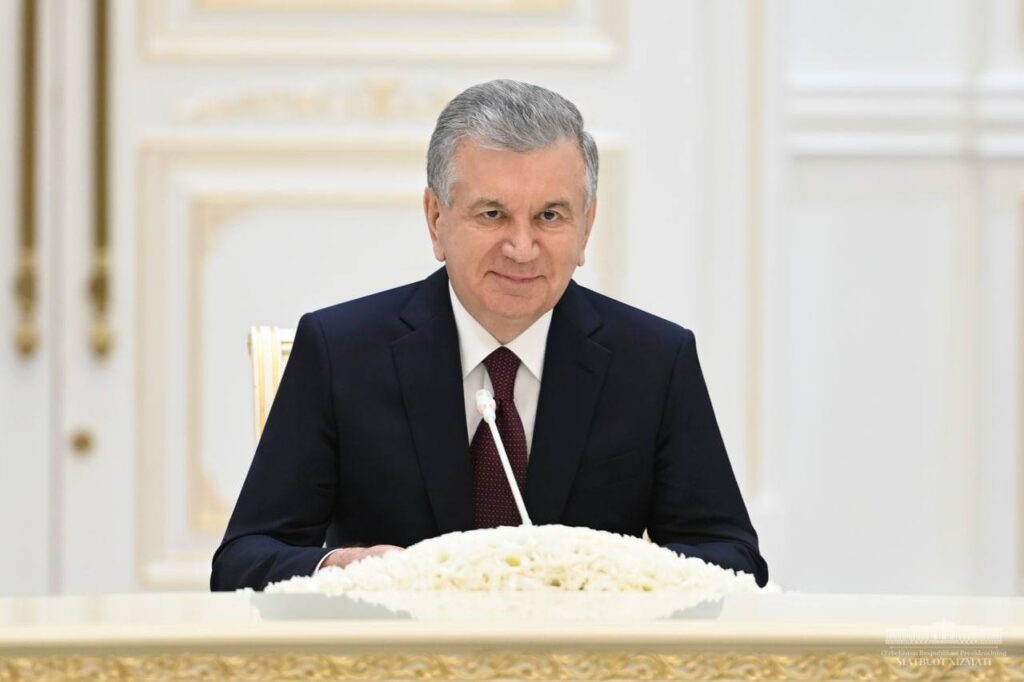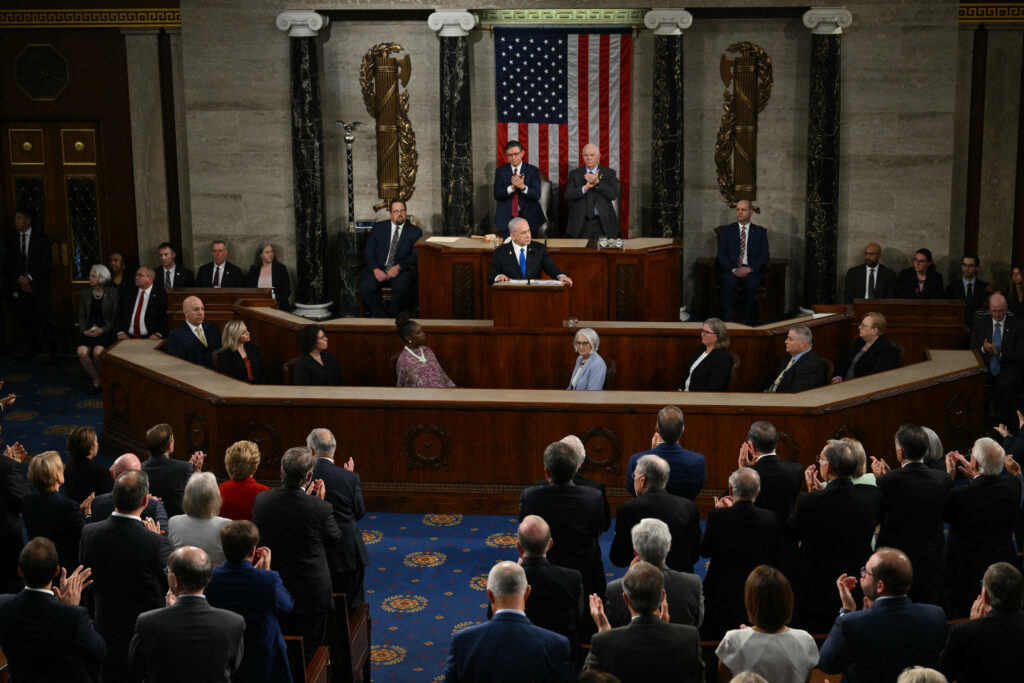New Uzbekistan: Investors are Betting on Mirziyoyev, not a Fully Transformed Country
- - September 4, 2023

By Misha Monteiro-Benson, Research Assistant, MEI-NUS
President Shavkat Mirziyoyev of Uzbekistan was re-elected in a landslide after snap elections on 9 July — a result, his supporters assert, that validates his push for constitutional reforms. The reform campaign, dubbed the National Development Strategy (or “New Uzbekistan”), is aimed at transforming the economic and political structure of the country, which had been an isolated totalitarian regime until 2016, when Mr Mirziyoyev first came to power. His rule has sparked cautiously optimistic discussions on Uzbekistan’s potential as a new and reliable economic partner, even in Singapore, and both sides have seen a flurry in diplomatic activity as a result. President Halimah Yacob and Mr Mirziyoyev have made reciprocal state visits, and MOUs on economic and tourism collaboration have been signed.[1] What remains to be seen is whether the Uzbek reform drive is both transformative and sustainable enough to turn it into a thriving “frontier market”, or if the country’s history of corruption and entrenched crony interests will prove a bridge too far for Mr Mirziyoyev.
Becoming President and Aiming for a “New Uzbekistan”
Under Uzbekistan’s long-reigning first President, Islam Karimov, the country clung to its Soviet-style system of political repression, leaving it among the most isolated countries in the world, and an economic backwater. After Karimov’s death, a power struggle ensued, during which Mr Mirziyoyev emerged as the leading candidate.[2] After winning power, the new President consolidated his position and pursued an active programme of reforms which shook the country’s political establishment. In one of his first acts, he attacked the elite “old guard” by dismantling a bastion of their power, the SNB, the secret police organisation that was both feared and reviled by the public[3].
In taking apart the country’s political structure, Mr Mirzoyeyev promoted decentralisation and local governance. In August 2017, legislation was passed in the Oily Majlis (Parliament) to allow direct elections for regional leaders like mayors and governors.[4] He also delegated more power to regional governors, granting them greater authority over economic and social development initiatives. To foster civil society development, he revived and empowered the traditional institution of mahalla, a community-based grassroots governance system. Derived from the Arabic word meaning “locality”, these mahallas governed Uzbek villages and communities since ancient times.[5] Under Mr Mirziyoyev, they were given greater decision-making authority and resources to address local issues and improve public services.
In the area of human rights and civil liberties, Mr Mirziyoyev released thousands of prisoners, including high-profile opposition figures, journalists, and activists. He closed the country’s infamous “gulags”, and made arbitrary arrests and torture illegal.[6] Uzbekistan also began re-engaging with international human rights groups, and even allowed visits by the United Nations’ Special Rapporteur on Torture to verify that the reforms had been implemented effectively.
Meanwhile, previously-banned opposition parties, such as the People’s Democratic Party and the Justice Social Democratic Party, were allowed to register and participate in the political process. Among other changes, censorship has been eased, leading to coverage of topics that were previously off-limits, such as the removal of corrupt or incompetent officials.
In the economic sphere, Mr Mirziyoyev’s moves included easing tight currency controls, opening the country to foreign investment, and embarking on a privatisation programme. One of the first orders of business was to eliminate the practice of petty bureaucrats at every level extorting bribes from foreign investors, which stalled small and medium business (SME) expansion into Uzbekistan.
These moves have borne fruit. In 2018, the European Bank for Reconstruction and Development’s (EBRD’s) transition report for Doing Business identified Uzbekistan as “the most dramatic example…of a government having introduced comprehensive and far-reaching reform packages following long periods of inactivity”.[7] In 2020, a United States Congressional Research Report called the changes in Uzbekistan “remarkable”, and advised more re-engagement from Washington.[8] During Mr Mirziyoyev’s first term, Uzbekistan’s GDP grew by 6 per cent in 2019, before stalling in the wake of the Covid-19 pandemic. As restrictions eased, the economy bounced back, growing by 7.4 per cent in 2021, and a further 5.4 per cent last year.[9] According to World Bank data, unemployment fell to 8.8 per cent in 2021, while the poverty rate declined by 1.3 per cent to 17 per cent over the same period.[10]
The Challenges that Remain…
But while the reforms have shown progress, several serious challenges, both structural and social, remain. Corruption, entrenched in Uzbek society and government, is one of the stiffest. The kleptocratic nature of Karimov’s rule, where his inner circle was rewarded for loyalty rather than effectiveness, continues to infect the bureaucracy — many officials still attempt to carve out niches within their vested interests.
Corruption is endemic and exists at all levels of business, government and civil society, and though measures that have been introduced to fight the scourge have met with some success — Uzbekistan has been climbing Transparency International’s Index[11] in recent years — the problem persists. Incidents such as the acquittal of Swedish executives whose company admitted to bribing Karimov’s daughter Gulnara Karimova for access to the Uzbek telecom market[12] overshadow reports of progress, and highlight how the country has failed to tackle the familial and social dimension of corruption. To address this, Mr Mirziyoyev needs to continue his anti-corruption efforts not only by strengthening the rule of law, promoting transparency, and enforcing accountability measures, but through education and creating a culture of certain judicial punishment for the guilty. Current criminology research highlights that the certainty of punishment, not severity, ensures effective deterrence.[13]
However, this presents a formidable challenge: In Uzebekistan’s context, separating the judiciary from the executive would mean that Mr Mirziyoyev would have to give up significant powers. In a 2020 report, the United Nations’ Special Rapporteur on the independence of judges and lawyers, Diego Garcia-Sayan, expressed concern that the independence of the judiciary continues to be undermined by policies and practices involving the executive, from the appointment of judges to administration of court proceedings.[14]
In the fight against corruption, Mr Mirziyoyev has also been unable to get buy-in from swathes of the country’s political, economic, and social establishment. While open resistance and opposition to a national leader is unheard of in Uzbekistan, rumbles of discontent manifest themselves through bureaucratic obstruction. As Kate Mallinson, a risk expert on Central Asia, wrote in a Chatham House commentary: “Some reforms simply get lost in the long chain from presidential decree to implementation.”[15]
Mr Mirziyoyev also faces pressure from those who want to see more rapid change, especially when it comes to civil rights. In an August 2021 interview, he said that while the country has changed, it was still not, “…the Uzbekistan we dream about. We still have a long and thorny way to go”.[16] Despite the introduction of new safeguards, journalists who report on sensitive issues such as corruption or wrongful imprisonment continue to be harassed and arrested.[17]
While high popular support for the president’s economic reforms bolsters his efforts, his stuttering attempts to decisively change the power dynamic could hurt him over the long run — navigating the trade-offs central to policymaking will be one of his administration’s key challenges.
A Real Journey of Reform with a Long Way to Go
The success of Uzbekistan’s “thawing out” rests on successfully navigating undercurrents of resistance, effective implementation of reforms, and the changing paradigm of power structures that the reforms have brought. Under Karimov, the insular economic model was often justified as a means of protecting Uzbekistan from global market shocks.[18] Mr Mirziyoyev has leveraged some of Uzbekistan’s built-in advantages, such as natural resources and good energy infrastructure, to grow the country’s economy. Tapping further on these will create the potential to take the country to the next level.
The good news is that in the main, there is optimism about Uzbekistan’s future. Fitch Ratings, for instance, projected the economy will grow by 4.7 per cent this year, and 6 per cent in 2024.[19] It also flagged other positive indicators, including a commitment to reform, and strong governance. On the downside, the country’s continued reliance on Russia, and the prospect of a drawn-out war in Ukraine, have cast a pall over its prospects, especially as Moscow itself begins to feel the pinch from its south-western adventure.
Another factor in Mr Mirziyoyev’s favour is time. Given the changes he has made, the president can be expected to remain in power till 2037, giving him the time to both shore up the country’s stability, and continue his reform drive. Perhaps more crucially, a stable government in the years ahead will provide the runway for the most important aspect of the reform drive — proper implementation.
Overall, the outlook for Uzbekistan’s future is positive, and things are unlikely to return to the bad old days. Investors and businesses are increasingly exploring the market as the country’s reputation as a high-risk, low-return market is shifting. While challenges remain, Mr Mirziyoyev’s reform train has left the station, and the combination of popular support for his moves, as well as Uzbekistan’s own growth, will make a turnaround unlikely.
Image Caption: President of the Republic of Uzbekistan Shavkat Mirziyoyev delivering a press statement on 28 October 2022 in Tashkent. Photo: Shavkat Mirziyoyev’s Press Service / Twitter
End Notes
[1] “Remarks by President Halimah Yacob at the Uzbekistan-Singapore Business Forum.” Instana.gov.sg. Office of the President of the Republic of Singapore, May 24, 2023. https://www.istana.gov.sg/Newsroom/Speeches/2023/05/24/Remarks-by-President-Halimah-Yacob-at-the-Uzbekistan-Singapore-Business-Forum.
[2] Marszewski, Mariusz. “Thaw in Uzbekistan. Reforms by President Mirziyoyev.” osw.waw.pl. Centre for Eastern Studies, July 17, 2018. https://www.osw.waw.pl/en/publikacje/osw-commentary/2018-07-17/thaw-uzbekistan-reforms-president-mirziyoyev-0.
[3] Mariusz, 2018
[4] “Mirziyaev Proposes Direct Elections Of Uzbek Regional, Local Leaders.” Rferl.Org. Radio Free Europe, Radio Liberty, December 8, 2016. https://www.rferl.org/a/uzbekistan-mirziyaev-direct-elections-regional-local-leaders/28163665.html.
[5] Urinboyev, Rustamjon. “Informal Civil Society Initiatives in Non-Western Societies: Mahallas in Uzbekistan.” Central Asian Survey Volume 41, no. Issue 3 (2022): 477-497. Accessed July 10, 2023. https://doi.org/10.1080/02634937.2022.2058915.
[6] Mariusz, 2018
[7] “Transition Report 2018-19: Work in Transition.” Ebrd.Com. European Bank for Reconstruction and Development, November 12, 2018. https://2018.tr-ebrd.com/countries/#.
[8] Blackword, Maria A. “Reforms in Uzbekistan.” Crsreports.Congress.Gov. Congressional Research Service, January 15, 2020. https://crsreports.congress.gov/product/pdf/IF/IF11408.
[9] “Uzbekistan Data.” Data.Worldbank.Org. The World Bank, 2021. https://data.worldbank.org/country/UZ.
[10] Uzbek data, World Bank
[11] “Uzbekistan’s Path in Overcoming Corruption.” Undp.Org. United Nations Development Programme, September 30, 2020. https://www.undp.org/uzbekistan/stories/uzbekistan%E2%80%99s-path-overcoming-corruption. https://www.transparency.org/en/countries/uzbekistan
[12] Lynch, Ian J. “Off the Hook: Acquittals of Swedish Telecom Officials Linked to Uzbek Bribery Scandal Upheld.” Thediplomat.Com. The Diplomat, February 10, 2021. https://thediplomat.com/2021/02/off-the-hook-acquittals-of-swedish-telecom-officials-linked-to-uzbek-bribery-scandal-upheld/.
[13] Abramovaite, Juste, Siddhartha Bandyopadhyay, Samrat Bhattacharya, and Nick Cowen. “Classical Deterrence Theory Revisited: An Empirical Analysis of Police Force Areas in England and Wales.” European Journal of Criminology, (2022). Accessed July 10, 2023. https://doi.org/10.1177/14773708211072415.
[14] Garcia-Sayan, 2022
[15] Mallinson, Kate. “Can Uzbekistan’s President Meet Raised Expectations?” Chathamhouse.Org. Chatham House, December 11, 2019. https://www.chathamhouse.org/2019/12/can-uzbekistans-president-meet-raised-expectations.
[16] Astrasheuskaya , Nastassia. “Uzbekistan Reform Agenda Shows Signs of Slowing.” Finanical Times (London), September 10, 2021. https://www.ft.com/content/4adc11af-ee8e-4344-8c4e-7707c66fe913.
[17] Financial Times, 2021
[18] Pomfret, Richard. 2018. The Central Asian Economies in the Twenty-first Century: Paving a New Silk Road. 1st ed. Princeton: Princeton University Press. https://doi.org/10.23943/princeton/9780691182216.001.0001.
[19] “Governance, Economic Reform Key for Uzbekistan after Mirziyoyev Re-election.” FitchRatings. Fitch Ratings, July 19, 2023. https://www.fitchratings.com/research/sovereigns/governance-economic-reform-key-for-uzbekistan-after-mirziyoyev-re-election-19-07-2023.
More in This Series
More in This Series
- Jean-Loup Samaan
- - July 11, 2024
- Aisha Al-Sarihi, Ehsan Rasoulinezhad, Jinseok Sung
- - June 20, 2024








